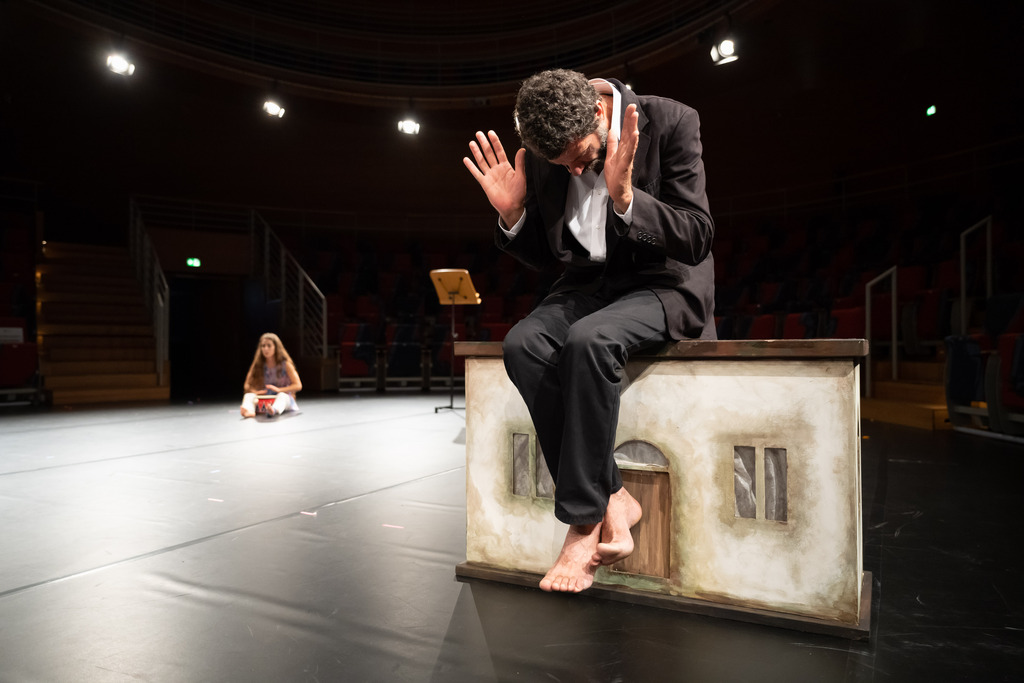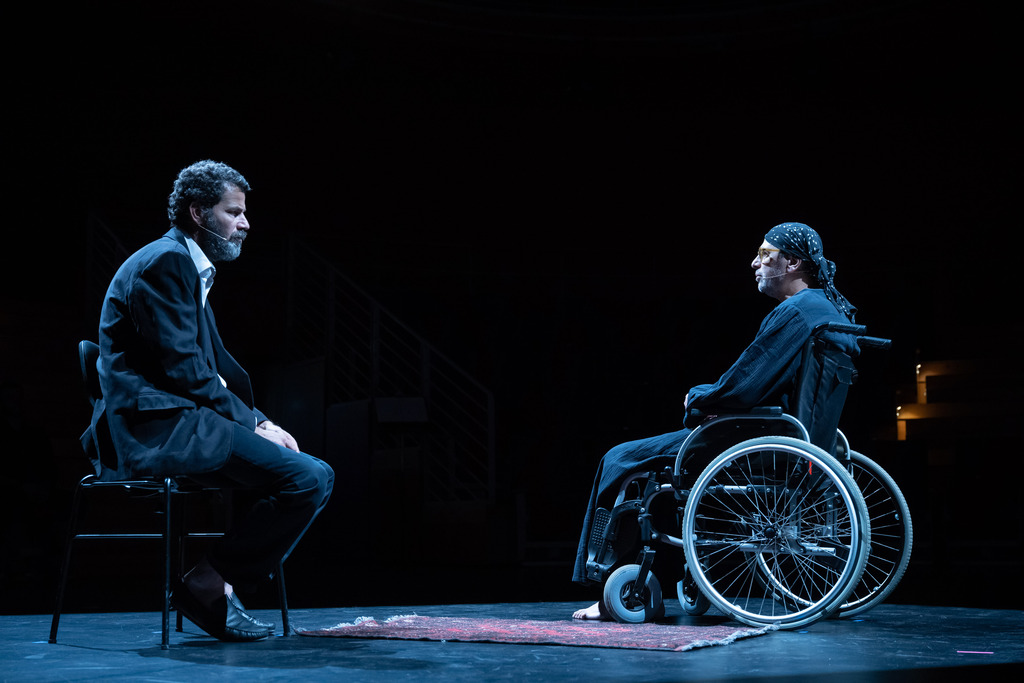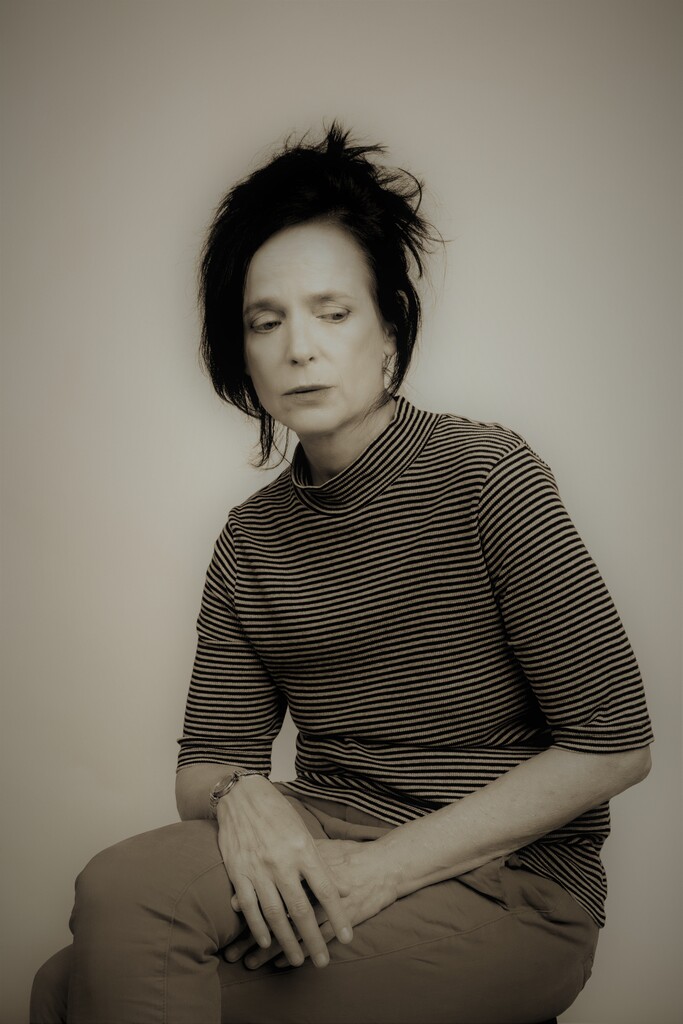"We don’t give any answers, we ask questions"

"We must tell stories to remember. And, to forget". These are the closing reflections of the narrator in the play "The Queen Commanded Him to Forget", directed by Ofira Henig and Khalifa Natour, which premiered in October at the Pierre Boulez Saal in Berlin. The plot centres around a mother who, in times of war, does all she can to protect her two children, a girl and a boy.
The piece also examines the role played by literature in the recollection, processing and forgetting of stories and history. Performed by an ensemble of six actors, the play is loosely based on the novel "The Children of the Ghetto: My Name is Adam" by Lebanese writer Elias Khoury. It bears traces of Brecht’s "Mother Courage" as well as the fairytale "Hansel and Gretel".
The production is finely balanced. Is the narrator, who acts as a guide through the play, addressing the audience and the protagonists by turns, an Arab storyteller or a commentator in the Brechtian sense? Is the stylised portrayal of the two children a nod to Eastern theatrical tradition? And the embodiment of the mother, Um Hassan, by a man, a reference to the portrayal of women by men in theatre productions since time immemorial? Or do both serve to effect an alienation – again in the sense of Brecht – and an abstraction?
By using these techniques, the production shows one thing above all else: the universality of the themes of war, violence and loss. It is about the Israeli-Palestinian conflict. And at the same time, about the wars of this world.

"It’s about trust"
For prize-winning Israeli director Ofira Henig, this is the first play she has staged in Arabic. Its development was a lengthy and unique process, admits the petite woman with the quiet voice.
"I had read the Hebrew translation of Khoury's work. So our first job was to translate it into Arabic. Then during rehearsals, we often spent ages considering individual words and discussing them with the actors, some of whom spoke in different dialects. In a process like this, it’s essentially about listening to each other, and trust," says Henig.
Henig has already worked on many of the world’s stages together with her artistic partner, the dramatist and actor Khalifa Natour. A fact that many in Europe and the U.S., as well as the Israeli government, would like to sell as a "sexy Israeli-Palestinian cooperation".
But Henig insists she’s not playing that game. "We’re not a co-existence project," she emphasises. "Because there is no co-existence." She stopped accepting any funding through Israeli institutions years ago.

The uprooted artist
Working as an artistic director with various theatres, Ofira Henig was part of a progressive, left-wing theatre community in Israel that she describes as "political and brave" in the 80s and early 90s. But in parallel with political developments, theatre also became "increasingly bourgeois and commercial", she says.
As a counterpoint, her work became increasingly serious, radical and intellectual. When the Israeli Ministry of Culture obliged all state-funded theatres to play in the Palestinian territories and started interfering in the selection of plays and actors, Henig was the director of the Herzliya Municipal Theatre – and resisted.
But the political and artistic pressure exerted upon her continued to grow. She realised she was losing her grip on the situation. Eventually, she was shown the door.
But she continues to pursue her never-ending dialogue with the audience. In Berlin, and all over the world. These days she only visits Tel Aviv in a teaching capacity. And says she’s found her home in Berlin, in the city’s theatre landscape and its open, diverse audiences.
In the theatre, Ofira Henig explains, it’s all about generating an alternative reality. There, it is sometimes easier than in real life to place different narratives alongside each other, she continues. It’s also about creating a space that tackles ethical questions. A space that asks questions.
"Theatre should be touching and thought-provoking. It’s political, not in the sense of news headlines, but in the sense of questions concerning morality. It’s not about educating the audience. That’s not art. Theatre is based on conflict and illustrates this conflict," says Henig.
Her current project "Listen to my Story" is also dedicated to contemporary, universal themes. The theatrical concert project for children and their parents, set to be premiered in early 2023 at the Pierre Boulez Saal in Berlin, deals with the theme of migration between places, cultures and languages.
In the play, a co-production involving young members of Henig’s ensemble and students of the Barenboim-Said Akademie, the focus is on the generation of an imaginary language that makes it possible to do something beyond the reach of words alone: to listen to the music of the human soul.
© Qantara.de 2022
Translated from the German by Nina Coon
